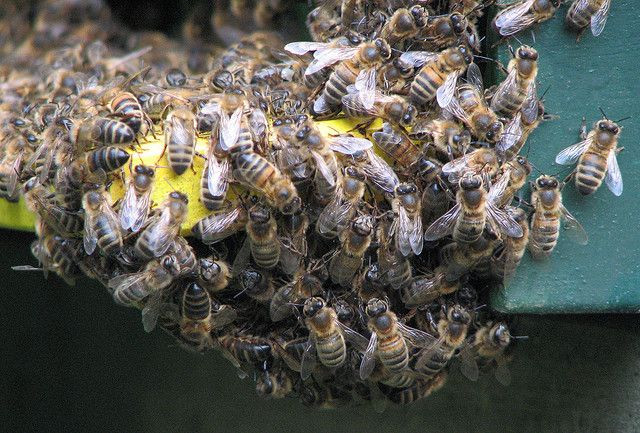Killer Bees Kill Horses: Swarm Of 30,000 Attacks Mangeta, Texas Couple And Their Animals

A scene from a horror movie unfolded last Wednesday when a swarm of 30,000 killer bees attacked a North Texas couple, killing two of their horses and five hens. Kristen Beauregard, 44, received 200 bee stings while her unidentified boyfriend received another 50 as they frantically tried to avoid the onslaught, the Star-Telegram reported.
Beauregard was out exercising with her Shetland pony Trump when the horse began to jump and kick as if agitated. The next thing she knew a dark cloud had settled above her — only it was made up of bees. The highly aggressive insects began stinging the couple, prompting Trump and the couple to jump into the pool to escape.
When they all attempted to surface for air, the bees were still surrounding them, stinging their face and nose. The couple decided to make a run for the house, and upon closing the door, Beauregard said she heard the sound of the bees crashing into the window.
Unfortunately, Trump couldn't escape. Beauregard watched helplessly as he stumbled across the yard, trying to wipe the bees off on bushes. A second horse, Chip, was also met by the attack.
After Beauregard's boyfriend called 9-1-1, firefighters arrived with specialized suits and a foam substance to subdue the attackers. Paramedics and equine veterinarian Patricia Tersteeg's attempts to save the horses were unsuccessful as both animals died not too long after the incident occurred.
"He was so overwhelmed by bites that his body could not handle it," Tersteeg said. "That's way too much for any 250-pound mammal to survive."
Too many bee stings can be just as deadly for other animals as it can be for humans, as this unfortunate set of circumstances proved. In most cases, anaphylaxis or a severe allergic reaction to a bee sting can cause a dangerous drop in blood pressure.
Such an extreme allergic reaction requires an immediate trip to the emergency room where doctors will usually administer a shot of epinephrine to counteract the symptoms.
Published by Medicaldaily.com



























